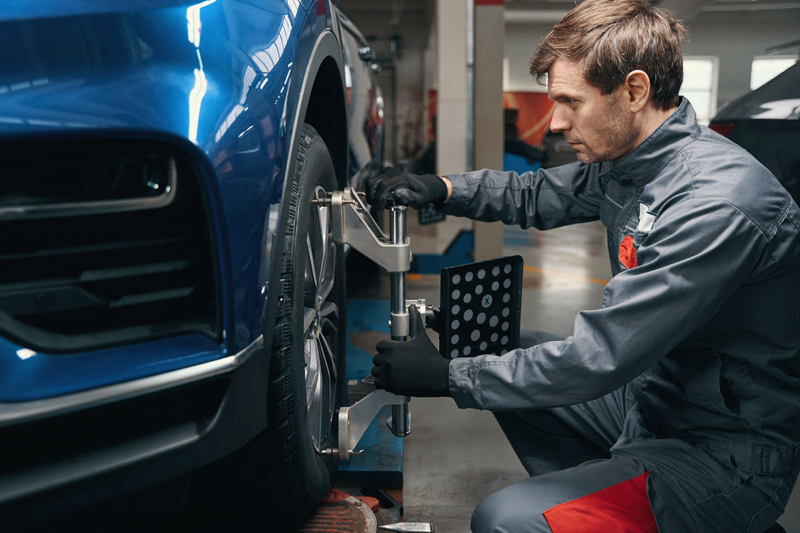Your vehicle’s brakes are in constant use whenever you are driving. From slowing down in traffic to stopping at a red light or making a sudden stop due to an obstruction on the road, your brakes play a crucial role. Continuous use leads to wear and tear, which can diminish their efficiency. Regular maintenance of your braking system is vital to ensure it remains in optimal condition, thus ensuring safe driving for you and your loved ones.
What Makes a Brake
The brake system of your vehicle consists of key components such as a disc (also known as a rotor), a caliper, and the brake pad. However, it may appear that pressing the brake pedal inside the car results in the vehicle coming to a halt; the process is more complex. When the brake pedal is depressed, brake fluid is propelled through the brake lines by a moving piston in the master cylinder. Subsequently, the pistons in the caliper are engaged, causing the brake pad to exert pressure on the rotor, generating friction on the brake drum. This friction between the brake pad and drum effectively slows down the vehicle and eventually brings it to a stop. It is evident that the braking mechanism is driven by a culmination of intricate actions beyond simply pressing a pedal. Ensuring each component is well-maintained through regular check-ups is vital for the safe and efficient operation of your vehicle’s braking system.
Why Choose a Mechanic?
Replacing brake pads is a common task that many DIY car enthusiasts take on themselves. Although it is a relatively straightforward repair to learn, it is crucial to have a thorough understanding of the process before attempting it. When dealing with something as critical as your brakes, we strongly advise seeking assistance from a certified mechanic, like those at Elite Car Care Auto Repair, rather than opting for a DIY approach. While a DIY job may save you money initially, improper installation or damage to the caliper and other brake parts could jeopardize the safety of your vehicle on the road.
If your brakes are squeaking, sticking, or seem to take much more pressure than usual to engage, it’s time to see a mechanic.
Price Points to Ponder
Regrettably, the wear and tear caused by the friction of your brakes gradually degrades your brake pads, necessitating regular replacements. This falls under the standard preventive maintenance practices essential for your braking system. Naturally, it involves a monetary investment to ensure your vehicle stays operational and guarantees your safe commute daily. Therefore, how much should you budget for brake repairs?
The average price to replace a brake pad runs anywhere from $100 to $300 per axle, depending on the shop you work with. This might seem like a lot in the moment, but consider the alternative. To repair or replace the brake caliper, if the pad goes forgotten and further damage ensues, it could cost you anywhere from $300 to $800, even going so high as $1000 for some garages. Similarly, replacing a brake rotor is somewhere in the range of $406 to $559.
When faced with the array of figures altogether, it can be overwhelming. That’s why, at Elite Car Care Auto Repair, we recommend proactive upkeep to our clients. This involves examining your brakes and addressing minor issues promptly, like installing new brake pads. While there is an expense involved, the investment pays off in the future, especially when compared to the potential higher costs of neglecting your brake pads.

